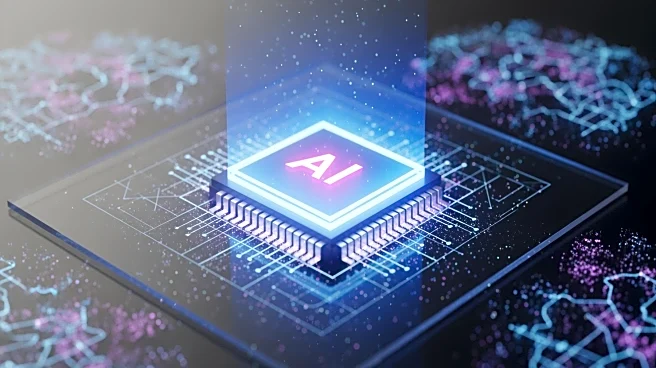What's Happening?
Phenom, a leader in applied AI, has announced three new innovations aimed at improving enterprise talent optimization and workforce management. These innovations include Enterprise Talent Optimization
& Work Redesign, Frontline Workforce Lifecycle & Shift Scheduling, and Unified Orchestration Engine. The enhancements are designed to connect business strategy directly to talent execution, allowing companies to map workforce implications, automate tasks, and personalize interactions across the talent lifecycle. Phenom's AI-driven solutions aim to close gaps in traditional talent approaches by enabling real-time strategy execution and improving operational efficiency.
Why It's Important?
Phenom's advancements in AI technology have the potential to transform how enterprises manage their workforce, aligning employee engagement with business strategy. By automating and optimizing talent processes, companies can reduce hiring costs, expedite productivity, and enhance employee development. The innovations address persistent challenges in workforce management, such as data silos and compliance issues, offering a more connected and human-centric approach. This could lead to improved organizational performance and competitiveness in the market.
What's Next?
Phenom's new technologies are expected to drive significant changes in HR practices, with enterprises adopting AI-driven solutions for talent management and operational efficiency. Companies may explore further integration of AI into their HR systems, leveraging Phenom's platform to enhance workforce planning and execution. The focus on personalized employee experiences and compliance automation could lead to broader adoption of AI in HR, influencing industry standards and practices.
Beyond the Headlines
The ethical implications of AI in workforce management include ensuring transparency and fairness in automated decision-making processes. The cultural shift towards AI-driven HR practices may require changes in organizational mindset and employee training. Long-term impacts could include a more agile and responsive workforce, with AI facilitating continuous improvement and adaptation to market demands.










